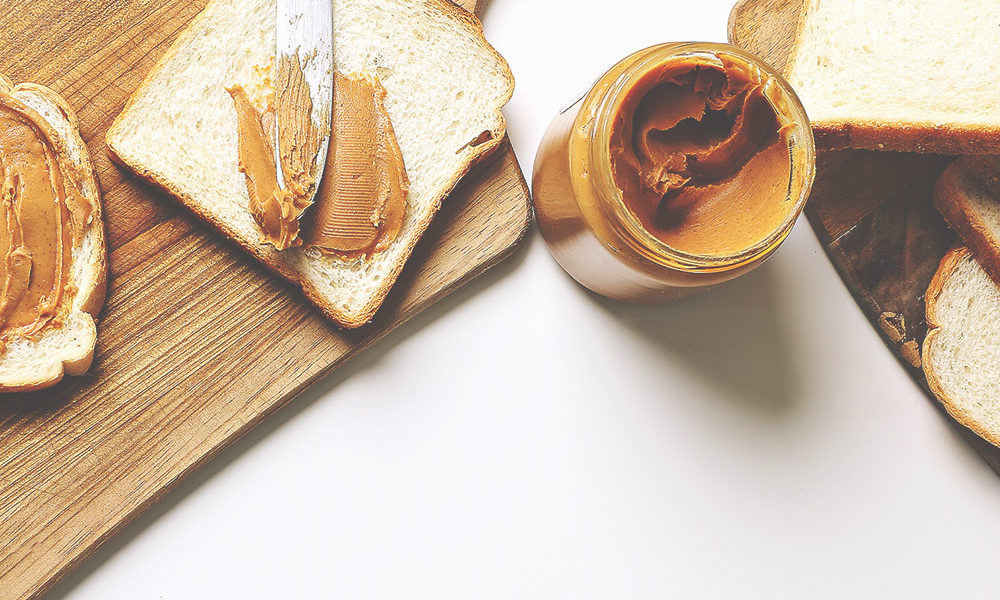Spread it, dip it, spoon it…you get the picture. If you’ve got a love affair with nut butter, here are 5 more varieties to add to the mix.
BY: LEANNE RAY, MS, RDN
Nut butter is one of the healthiest and most versatile ingredients in your kitchen, but are you using it to its full potential? While protein is generally the frequently cited nutritional quality of nut butter, there are so many more reasons for incorporating it. First, nuts are commonly known as being a rich source of “healthy” fats. In technical terms, most varieties are comprised of mostly monounsaturated fat, also known as the “good” fat that has a beneficial effect on our blood cholesterol levels by lowering LDL levels and simultaneously increasing our HDL levels.
According to research, adding nuts daily can also slash your risk for developing heart disease, decrease your risk for type 2 diabetes, total cancer and all-cause mortality. The mechanisms behind these benefits are not entirely known, but science suggests that nuts have a beneficial effect on inflammatory markers, which are a contributing factor to several chronic diseases. Many varieties of nuts are also high in magnesium which is beneficial for heart health. Plant sterols and their beneficial effect on endothelial function may also play a role.
It’s also hard to ignore that many of the world’s most well-researched eating patterns include nuts as a staple including the highly regarded Mediterranean diet, the blood-pressure lowering DASH plan, and one that has been gaining popularity in recent years – the MIND diet – which may be effective in decreasing risk for developing Alzheimer’s disease later in life.
Needless to say, most of us should be eating more nuts and seeds (unless you have an allergy of course), and nut butters can be a fabulous and delicious way to accomplish this. If you grew up on PB&Js, then you’ll agree that peanut butter is the most popular, coming in with the highest protein amount at 8 grams per two tablespoon serving. If you are looking for some new ones to try, here are 5 to keep in mind.
ALMOND
- Almond butter is a good source of hard-to-come-by magnesium, a mineral that supports the immune system and helps regulate blood glucose. Almond butter is also a good source of vitamin E, which is also an antioxidant.
WALNUT
- In addition to all of the usual suspects, walnuts are unique because they contain alpha-linolenic acid (ALA), the plant source of omega-3 fatty acids which are anti-inflammatory and beneficial for brain health.
SUNFLOWER
- While it’s technically a seed, sunflower seed butter provides zinc, in addition to folate and vitamin B6. Sunflower seed butter is a great alternative for anyone with peanut or tree nut allergies, and can be substituted in any of the above scenarios.
SESAME (TAHINI)
- Another deliciously healthy option in the seed faimly, sesame is a good plant-based source of calcium along with magnesium and iron. It can be used in salad dressings or sauces, as a key ingredient in hummus, or to add a savory element to traditionally sweet snacks.
HAZELNUT
- Rich in iron, magnesium and vitamin B6, hazelnuts are most commonly associated with chocolate versions. Spread it on strawberries to satisfy your sweet tooth while still reaping some nutritional benefits at the same time.
Now that you know what nut butters to try, how much should you eat?
While nut butters are calorically dense with a standard serving at two tablespoons, there’s a common misconception that it can cause weight gain. This is your friendly reminder that fat is not the dietary villain it was once made out to be. In fact, fat provides greater satiety, adds flavor and a pleasant mouthfeel to any dish. In fact, a small amount goes a long way on the flavor front. Contrary to what was once thought, consumption of nuts and nut butters is actually associated with improved weight control that’s likely attributed to the fiber and fullness factor.
Besides, stressing over how to target real food sources of fat is not something that the general healthy person needs to do. That’s especially true if you are filling your plate with a diverse selection of foods and are mindful of the types of fat you are regularly consuming. As with most foods, moderation is still key.
What’s your favorite nut butter?
Leanne Ray, MS, RDN is a Denver-based Registered Dietitian empowering women to sustain healthy lifestyles that are practical and realistic. By helping others find happiness and joy through delicious foods that don’t involve guilt or stress, she shares how healthy eating can involve satisfaction instead of boring, low-calorie diets. Visit her site to read more from Leanne.

